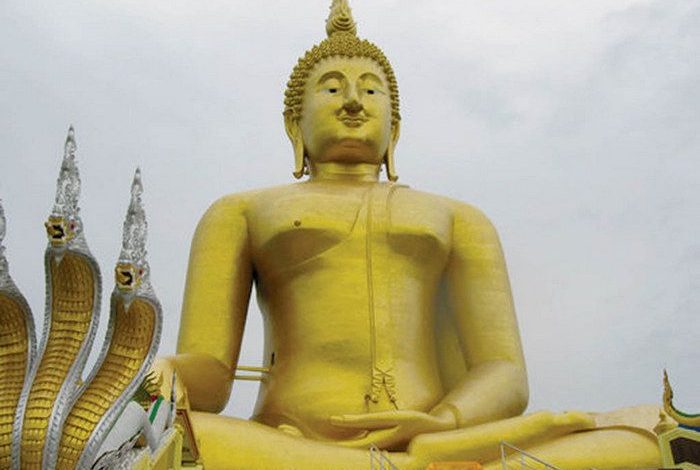How the Buddha used his mind


Connexion
By Joachim Ng
“We may not believe in God, but we certainly believe in godliness,” Buddhist chief high priest Venerable Dr K. Sri Dhammananda would quip to visitors at his Brickfields vihara. Buddhists refrain from talking about a supernatural creator, leaving you to ponder: “If not God, then who created the world?”
Wesak (May 29) is an appropriate day to highlight the Buddha’s original thinking. A WhatsApp problem-solving test goes like this: Here’s a bathtub full of water and you have three utensils — a ladle, a jug, and a bucket. How would you empty the bathtub? Use the bucket… obviously. But the correct answer is: you pull out the drain plug. This test illustrates the danger of conditioned thinking. You were conditioned to believe that only these three utensils could be used.
The Buddha realised that people were conditioned to assume that God created everything in the world and thereafter was actively managing the creation. Buddha questioned whether this creationist profile of God (more impersonally, the Ultimate Reality) was correct, and he proposed a self-creating universe instead. It remained a debatable idea for 2,500 years — until yesterday. Now with self-driving cars and self-learning robots making the news a self-creating universe, i.e., universe created by natural causes, doesn’t sound radical any more. The Buddha had a knack for unconfined borderless thinking. Instead of assigning supernatural reasons, he looked for logical explanations.
The Pali term used for natural creation is paticca samuppada (dependent origination). It means that all things owe their origin to a chain of dependencies. The antibiotic-resistant germs now inhabiting our bodies are not freshly created: they evolved from earlier non-resistant strains through a long process of miniscule change with each new generation until they became superbugs. New animal or plant species are born from older species, and in recent years a few scientists have concluded from mathematical equations that our universe is also born: we have a mother universe, and also a grandma universe.
A stupendous infinity of created forms and yet everything arises from emptiness. As Buddha avers: “Form then is emptiness. Emptiness then is form.” It’s a life-changing truth. If emptiness is the source of form, we can build our future according to our dreams. Start by questioning the assumptions that condition how you think. Empty your mind of clutter.


